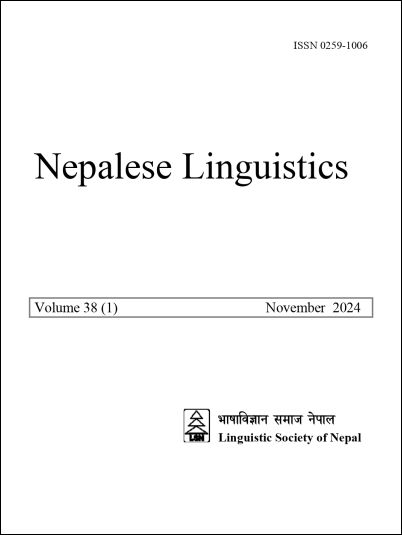Tense, Aspect, Modality and Evidentiality in Lhowa
DOI:
https://doi.org/10.3126/nl.v38i1.71563Keywords:
perfective, modality, imperfective, volitional, egophoricAbstract
This paper analyzes tense, aspect, modality and evidentiality in Lhowa from formal and functional perspective. Lhowa does not always present tense as a clear category of verbs. Mostly tense is deduced in the context. An aspect prominent language, Lhowa roughly exhibits the main distinction between perfective and imperfective aspects. It marks egophoricity constrained by clause types, speech act participants and volitionalty of verb classes. Tense-aspect interacts with modality and evidentiality. Lhowa also presents some contact induced patterns in encoding tense-aspect. It employs phonology, morphology, auxiliary verbs, combination of morphology and auxiliary verbs as major devices to encode grammatical categories of verb.




